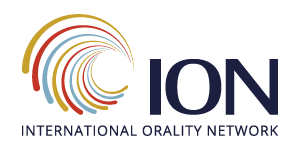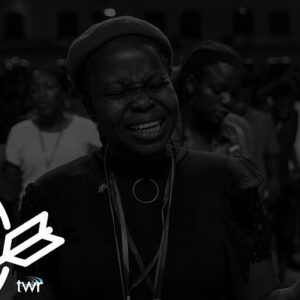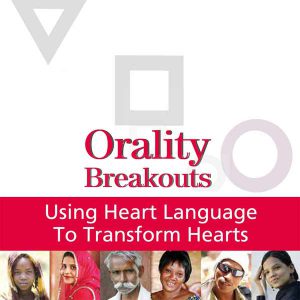The following is a chapter from the book ‘Orality Breakouts – Using Heart Language to Transform Hearts‘. A chapter will be posted here each week.
Epilogue
By Samuel E. Chiang
They asked each other, “Were not our hearts burning within us while he talked with us on the road and opened the Scriptures to us?” – Luke 24:32
Walking down Baghramyan Street in Yerevan, the capital of Armenia, I was reflecting on how the Scriptures first arrived in Armenia. How strange it might have been to hear them read in Greek or Syriac, but it was translated into Armenian orally. The oral format of the Word was available for one hundred years prior to the translation of the Scriptures into the local language, and then they still had to devise the missing alphabets that would express the sounds of the Armenian tongue.
With all the innovations and urgencies of getting the Word of God to those without it, one would have thought that all Scripture had already been provided to all peoples in their own heart language. With two millennia behind us, the truth of the matter is that out of 6,912 languages in the world, only 453 have an adequate Bible. There are approximately two billion people without an Old Testament.
There are 2,252 unengaged and unreached people groups, a total of 350 million people who do not have a single verse of the Bible in their own heart language. Coming on the horizon is the “mobile” generation, in which three billion people, each with his or her personal Smartphone, will connect, interact, and transact very differently by 2013.
The Digital Bible Project is a consortium of organizations, funding advocates, and Bible societies. They share a dream to reach the three billion Smartphone users, oral preference learners, and oral-speaking communities and societies. They are staying in front of the curve of providing digital rights management from audio to visual to print-on-demand. They want to see the Word of God being made available to a new “mobile” generation. They are so cutting edge that they are devising new alphabets and fonts for the sounds of pronunciation in the heart language, and for visual display on a gadget. They sense an urgency to bring the Word of God to all people groups.
We started our journey in this book with the questions How have we missed the mark? and What must we do differently? Almost always, the mental reflex is then to ask, Who else has done this? quickly followed by What are the best practices?
We have intentionally brought together a group of passionate strategists and practitioners. They represent a breadth of organizations from the smallest to the largest with different styles of operating. They are oral mission practitioners who are willing to listen to you and suggest means for you to go forward. Visit with them at www.heartstories.info, or join the Facebook group “Heart Stories.”
To the question of What are the best practices? we have deliberately not followed a formulaic route of providing simple steps to use. Too often, in the process of implementing those steps and without a powerful guiding coalition, some well-meaning advocate may manage to harm his or her own department or organization. Then, as some experts would suggest, if anything is ever identified as best practice, it probably isn’t, because it is copied too often and tailored only for certain organizational environments. In fact, some of the best practices are at the very leading edge of innovation, and not yet widely known or distributed.1 This book provides a glance at the leading edge.
We are not advocating any tried-and-true formula, as each organization, field, and people group is different. Furthermore, the cost of change might appear formidable, and the consequences of change are often a vast unknown. If you see orality as an innovation and need to implement it, it will require a change in fundamentals, including the measurement process. We ask, therefore, what are the formidable resistances to changing those fundamentals?
We are advocating the value of orality through the living proof of motivated colleagues. You know them, and you can trust in their words and watch what God has done through them. In Making Disciples of Oral Learners we described a quartet of values: heart language, worldview studies, accountability, and disciple-making multiplication. The colleagues contributing chapters in this book have affirmed those values in their practice and have seen tangible fruit.
Forward-thinking and inspiring statements have been put forth by Lausanne in the past. I think of the Amsterdam 2000 declaration, especially point number eight:
The Bible is indispensable to true evangelism. The Word of God itself provides both the content and authority for all evangelism. Without it there is no message to preach to the lost. People must be brought to an understanding of at least some of the basic truths contained in the Scriptures before they can make a meaningful response to the Gospel. Thus we must proclaim and disseminate the Holy Scriptures in the heart language of all those we are called to evangelize and disciple. We pledge ourselves to keep the Scriptures at the very heart of our evangelistic outreach and message, and to remove all known language and cultural barriers to a clear understanding of the gospel on the part of our hearers.2
What is your story? What will be your story? Are you willing to live out the next story?
Samuel E. Chiang
Yerevan, Armenia
Notes
1 Carol Coletta, “Innovative Cities,” http://www.urbanophile.com
2 Http://www.christianitytoday.com/ct/2000/augustweb-only/13.0.html (accessed 14 July 2010)
Biography
Rev. Samuel Chiang has written extensively on China, Asia, and orality; additionally, he has authored a book chapter “Innovations in Missions” (Authentic, 2007). He was formerly Chief Operating Officer for TWR, an international Christian media organization. Currently, Samuel serves as the Global Coordinator of the International Orality Network, which involves over two hundred participating organizations globally and aims to make the Word of God available to unreached people groups using appropriate oral strategies.
« Fad or Renaissance? Misconceptions of the Oralit...Why have you never told me? »




